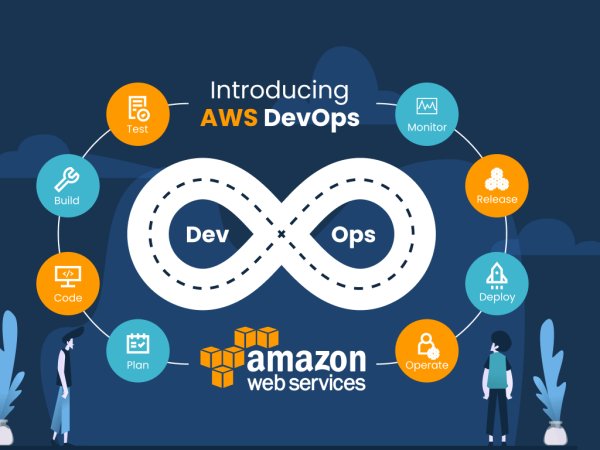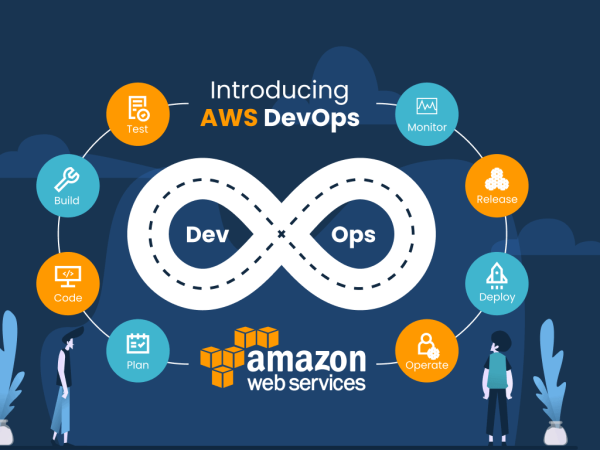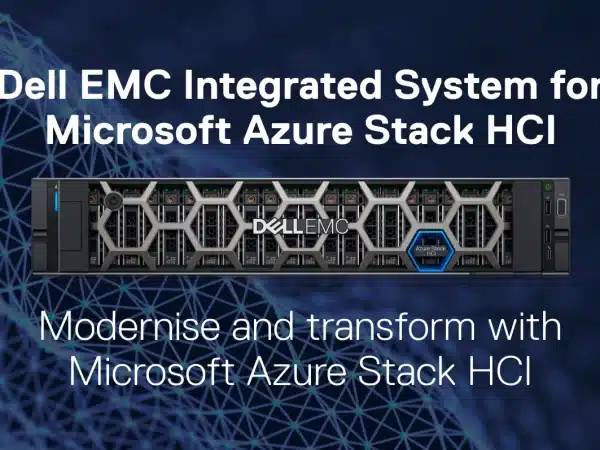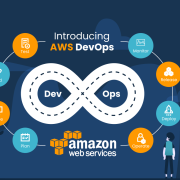In this article, we get to learn how cloud computing can benefit small businesses in 2023.
Cloud computing can benefit small businesses in 2023 by providing and processing services over the internet and accessing online resources when needed. Broadband Internet connections and the widespread availability of mobile devices are making cloud computing the means for small businesses around the world to deliver computing services over the Internet. Internet Applications, Storage, Computing and Other Services The benefits of cloud computing are available to small businesses on demand. Services as infrastructure, platforms as a service, and service-based software are examples of cloud computing services. The advantages of cloud computing for small businesses include easily accessible data, automatic synchronization, support for remote work, and easy backup.
What is cloud computing?
Cloud computing is the online and on-demand delivery of computing services such as applications, data storage and processing. Cloud computing services are typically pay-as-you-go, i. H. You only pay for the apps and online services you use. This method reduces your company’s running costs and offers flexible scalability.
Cloud Healthcare – A Rapidly Growing Industry that is Impacting the Medical Management Sector
What is cloud computing for?
Even if you don’t realize it, you’re probably using cloud software right now.Behind the scenes, whether you’re using an online platform like Gmail or Outlook 365 to send email, work on projects, store data, or stream video, cloud computing makes it possible.
Here are some of the most popular cloud computing applications:
Cloud Storage: Cloud services provide secure storage of data in a remote cloud storage system, making it accessible from anywhere or from any internet-connected device are. Cloud storage enables secure file sharing and cross-platform file synchronization. Dropbox, Microsoft OneDrive, and Google Drive are examples of popular online storage systems.
Cloud Backup: Cloud backup services are a safe option in case of server failure, hacking or any other data loss in your business. Archiving, data synchronization and recovery, real-time backup, archiving and high security are the hallmarks of the best online backup services. Many online storage systems also offer the option of backing up to the cloud.
Cloud Hosting: Cloud hosting services enable various types of information exchange, such as email, web applications, internet telephony systems and data storage. A cloud hosting service hosts your business website, hosts databases, and stores domain names. Because cloud services are deployed remotely, scaling to handle heavy workloads is easy.
Software as a Service: Software as a Service (SaaS) is a method of delivering applications over the cloud. SaaS options can be used by companies in various practice areas. For example, you can use SaaS CRM software like Salesforce for sales, accounting software like QuickBooks Online for financial management, and email marketing software to improve your marketing communications.
Click for Information on latest IPOs
What is the difference between cloud hosting and traditional hosting?
Traditional Hosting: Traditional hosting meets its customers’ hosting needs with a real server room. Conventional accommodation services are private or communal. Each choice has advantages and disadvantages.
Dedicated Hosting: Customer pays for a full server and dedicated hosting.Servers have varying levels of processing power, bandwidth, memory, and disk space. Private servers can be expensive.
Shared Hosting: Companies using shared hosting share a computer. Each user pays for a certain amount of storage space on the server and uses its capacity. Shared hosting is cheaper than private hosting. However, since a shared server handles network traffic between multiple parties, your website may load more slowly. If your website exceeds the shared service limits, you’ll likely end up spending more.
Cloud Hosting: Traditional hosting based on real server room; cloud hosting creates a virtual server room for each user. Only pay for what you need. Cloud computing services are generally operated on a pay-as-you-go basis. The load is distributed over several computers. The bandwidth load of hosting is distributed across multiple computers hosted in the cloud. You have high availability. Downtime is rare as each hosted site is served by multiple servers without major power outages. Even if one site experiences a problem or high traffic, the other sites on the same property are not affected. Expandable. Cloud hosting providers use a virtual space that can be changed at any time.
Disclaimer: The information provided in this article is solely the author/advertisers’ opinion and not an investment advice – it is provided for educational purposes only. By using this, you agree that the information does not constitute any investment or financial instructions by us. Anyone wishing to invest should seek his or her own independent financial or professional advice. Do conduct your own research along with financial advisors before making any investment decisions. We are not accountable for the investment views provided in the article.











Do you have a spam problem on this website; I also am a blogger, and I was wanting to know your situation; we have created some nice methods and we are looking to swap strategies with others, be sure to shoot me an e-mail if interested.
hi!,I love your writing so a lot! proportion we communicate extra approximately your article on AOL? I require a specialist in this area to resolve my problem. Maybe that is you! Looking ahead to look you.
I really appreciate this post. I¦ve been looking all over for this! Thank goodness I found it on Bing. You have made my day! Thanks again
I am typically to blogging and i really respect your content. The article has actually peaks my interest. I’m going to bookmark your website and preserve checking for new information.
What i do not understood is actually how you are not really much more well-liked than you might be right now. You’re so intelligent. You realize thus considerably relating to this subject, made me personally consider it from numerous varied angles. Its like women and men aren’t fascinated unless it’s one thing to accomplish with Lady gaga! Your own stuffs excellent. Always maintain it up!
Hello there! Quick question that’s totally off topic. Do you know how to make your site mobile friendly? My weblog looks weird when browsing from my iphone 4. I’m trying to find a theme or plugin that might be able to resolve this problem. If you have any suggestions, please share. Cheers!
Yesterday, while I was at work, my sister stole my iPad and tested to see if it can survive a thirty foot drop, just so she can be a youtube sensation. My apple ipad is now broken and she has 83 views. I know this is completely off topic but I had to share it with someone!
You are a very bright individual!
Great post. I am facing a couple of these problems.
Thanks for sharing excellent informations. Your site is so cool. I am impressed by the details that you’ve on this blog. It reveals how nicely you perceive this subject. Bookmarked this web page, will come back for extra articles. You, my friend, ROCK! I found just the information I already searched all over the place and simply could not come across. What an ideal web-site.
Its like you read my mind! You seem to know so much about this, like you wrote the book in it or something. I think that you could do with some pics to drive the message home a little bit, but other than that, this is wonderful blog. A fantastic read. I’ll definitely be back.
Very good written information. It will be beneficial to anybody who utilizes it, including yours truly :). Keep doing what you are doing – looking forward to more posts.
I think you have remarked some very interesting points, thanks for the post.
F*ckin’ awesome issues here. I am very glad to peer your article. Thank you so much and i’m having a look ahead to touch you. Will you please drop me a mail?
You have noted very interesting details! ps decent internet site. “The length of a film should be directly related to the endurance of the human bladder.” by Alfred Hitchcock.
I will immediately take hold of your rss as I can’t find your email subscription link or newsletter service. Do you have any? Kindly let me recognize in order that I could subscribe. Thanks.
I am not rattling wonderful with English but I get hold this rattling easygoing to translate.
Good day very nice web site!! Man .. Excellent .. Wonderful .. I’ll bookmark your website and take the feeds also…I am happy to seek out a lot of useful info here within the submit, we’d like develop more strategies in this regard, thanks for sharing.
I truly appreciate this post. I¦ve been looking all over for this! Thank goodness I found it on Bing. You have made my day! Thanks again
I like this website very much, Its a very nice spot to read and receive info .
What¦s Going down i am new to this, I stumbled upon this I’ve found It positively helpful and it has aided me out loads. I am hoping to give a contribution & help different users like its helped me. Great job.
Hey there, You’ve done a fantastic job. I will certainly digg it and personally recommend to my friends. I am confident they will be benefited from this site.
SightCare reviews
Fitspresso review
Cellu care reviews
Lottery defeater system reviews
Sight care review
Fitspresso review
Sight Care reviews
Nano defense reviews
Fitspresso
Fitspresso
Lottery defeater system review
Cellucare reviews
Cellu care
Sumatra Slim Belly Tonic is a dietary supplement aimed at supporting weight loss and metabolic health. It features natural ingredients like herbs and vitamins that may boost metabolism, reduce appetite, and improve digestion. Marketed as a daily tonic, it helps promote a slimmer belly by enhancing the body’s fat-burning processes. Always review the ingredient list and consult with a healthcare professional before starting any new supplement.
Lottery defeater software reviews
Fitspresso review
Lottery defeater software reviews
Lottery defeater
Opini pix
Opini pix funciona
Juice to loss weight
Cellucare
Fitspresso
Fitspresso review
Fitspresso reviews
Fitspresso
Dentavim is a revolutionary dietary supplement designed to promote oral health by addressing two major concerns: teeth’ cleanliness and gums’ health. Unlike typical oral hygiene products that focus solely on surface treatment, Dentavim dives deeper into the issues often caused by environmental factors, especially particulate matter, which can lead to persistent bad breath and stubborn stains. This product contains a proprietary blend of six potent nutrients derived from natural sources to enhance dental hygiene and overall well-being.
Fitspresso
Generally I do not read post on blogs, but I wish to say that this write-up very forced me to try and do it! Your writing style has been amazed me. Thanks, very nice post.
Fitspresso
Fitspresso review
Fitspresso review
Fitspresso
Fitspresso review
Fitspresso review
Ikaria Lean Belly Juice reviews
Zencortex
Lottery defeater software review
Neotonics
Sightcare reviews
Dentavim
Watch this great Dentavim review
Lottery defeater software review
Sight Care
Unlock the potential of your pineal gland with the potent Pineal XT Dietary supplements serve as a gateway to expanding one’s range of expression, and Pineal gland support supplements, in particular, can elevate mental and spiritual capabilities. Pineal XT vitamins offer a pathway to endless joy, prosperity, health, and love. These supplements are designed to bolster the pineal gland’s function, enhance overall body performance, and boost energy levels. It stands as a premier alternative for reducing the impact of fluoride, pollutants, and the natural aging process.
Neotonics gummies
Fitspresso review
Kerassentials review
Fitspresso reviews
Fitspresso review
sugar defender
Cellucare
Fitspresso reviews
sugar defender supplement
Fitspresso
Javaburn
Fitspresso reviews
Fitspresso reviews
After research just a few of the blog posts in your website now, and I truly like your method of blogging. I bookmarked it to my bookmark web site list and shall be checking back soon. Pls check out my website online as well and let me know what you think.
Hi, I think your site might be having browser compatibility issues. When I look at your website in Safari, it looks fine but when opening in Internet Explorer, it has some overlapping. I just wanted to give you a quick heads up! Other then that, fantastic blog!
Some truly interesting points you have written.Helped me a lot, just what I was searching for : D.
Fitspresso reviews
Fitspresso reviews
Fitspresso is a brand-new natural weight loss aid designed to work on the root cause of excess and unexplained weight gain. The supplement uses an advanced blend of vitamins, minerals, and antioxidants to support healthy weight loss by targeting the fat cells’ circadian rhythm
Fitspresso reviews
Fitspresso reviews
Javaburn review
SUGAR DEFENDER
TONIC GREENS
sugar defender
Lottery defeater software reviews
Lottery defeater
Fitspresso review
Fitspresso
Fitspresso review
Sight care review
Pura vive review
Lottery defeater software
Neotonics
Fitspresso reviews
Fitspresso
LORRERY DEFEATER
LOTTERY DEFEATER
Nanodefense
Purevive reviews
GROWTH MATRIX REVIEWS
Neotonics
Lift detox black reclamações
provadent supplement
SYNC REVIEWS
LOTTERY DEFEATER
Lottery defeater software
The genius wave review
Sight Care reviews
ZENCORTEX REVIEW
The genius wave
I’m still learning from you, as I’m trying to achieve my goals. I absolutely enjoy reading all that is written on your site.Keep the tips coming. I enjoyed it!
I wanted to thank you for this great read!! I definitely enjoying every little bit of it I have you bookmarked to check out new stuff you post…
Lottery defeater system
Lottery defeater system reviews
sugar defender review
Lottery defeater software review
The genius wave
Dentavim review
PLANTSULIN
Lipozem reviews
Puravive
GLUCO FREEDOM
Erecprime review
LIPOZEM REVIEW
ALPHA BITES
sugar defender reviews
Pronerve 6 reviews
Lottery defeater software review
ALPHABITES
Dentavim review
TonicGreens
Pro nerve review
Billionaire brain wave reviews
Sumatra Slim Belly Tonic
Unlock the potential of your pineal gland with the potent Pineal XT Dietary supplements serve as a gateway to expanding one’s range of expression, and Pineal gland support supplements, in particular, can elevate mental and spiritual capabilities. Pineal XT vitamins offer a pathway to endless joy, prosperity, health, and love. These supplements are designed to bolster the pineal gland’s function, enhance overall body performance, and boost energy levels. It stands as a premier alternative for reducing the impact of fluoride, pollutants, and the natural aging process.
Provadent review
Lottery defeater system
Plantsulin reviews
Livcare reviews
Flexigenics review
Boostaro reviews
Lottery defeater system review
Boostaro review
Fitspresso reviews
Sight Care reviews
Lipozem reviews
The genius wave reviews
Puravive reviews
Nano defense
PROSTAVIVE
Lipozem review
PROSTAVIVE REVIEW
Boostaro review
Alphabites reviews
Quietum Plus
nitric boost works
The genius wave reviews
Alphabites review
PROVADENT
Alphabites
LIPOZEM
ultra boost
Alphabites review
LOTTERY DEFETAER REVIEWS
ALPHA BITES REVIEW
LOTERRY DEFEATER REVIEWS
BOOSTARO
FITSPRESSO
BOOSTARO REVIEWS
NAGANO LEAN BODY TONIC
ALPHA BITES REVIEWS
Great remarkable things here. I am very satisfied to peer your post. Thank you a lot and i am looking forward to touch you. Will you please drop me a mail?
Hi , I do believe this is an excellent blog. I stumbled upon it on Yahoo , i will come back once again. Money and freedom is the best way to change, may you be rich and help other people.
I think this internet site contains some really great information for everyone : D.
I was very happy to search out this net-site.I needed to thanks to your time for this excellent learn!! I positively having fun with every little little bit of it and I have you bookmarked to take a look at new stuff you blog post.
Alpha bites reviews
TURMERIC HACK RECIPE
LIPOZEM
PURAVIVE
FITSPRESSO REVIEWS
PRONAIL COMPLEX REVIEWS
Lipo Slim
NERVOVIVE
Fitspresso review
I’m also commenting to let you be aware of of the wonderful discovery my girl found studying your webblog. She came to find some details, not to mention what it’s like to possess an ideal coaching nature to make other people without problems fully grasp specified very confusing subject matter. You truly surpassed visitors’ expected results. Many thanks for rendering the helpful, safe, edifying and also unique tips about the topic to Tanya.
Alpha bites
FREE SUGAR PRO REVIEW
Alphabites review
Lipozem reviews
Bariatric tea
Alphabites reviews
LipoSlim
Alpha bites
Alphabites review
Femipro
MANNA FLUX
Kerassentials
Alphabites reviews
Boostaro review
TONIC GREENS REVIEWS
Dentavim review
LEANBIOME REVIEWS
SUGAR DEFENDER REVIEW
buy Booster XT
Booster XT pricing
Alphabites
Alpha bites review
buy Booster XT
NEUROQUIET REVIEWS
Alphabites review
Fitspresso review
Mitolyn review
Lipozem
Mitolyn review
Mitolyn
MITOLYN REVIEW
Mitolyn
Mitolyn
Mitolyn review
Hey very nice blog!! Man .. Beautiful .. Amazing .. I will bookmark your blog and take the feeds also…I’m happy to find a lot of useful info here in the post, we need work out more techniques in this regard, thanks for sharing. . . . . .
Some really excellent info , Gladiolus I noticed this.
Keep functioning ,fantastic job!
I haven¦t checked in here for a while since I thought it was getting boring, but the last few posts are good quality so I guess I will add you back to my daily bloglist. You deserve it my friend 🙂
how does Booster XT work
Lottery defeater software reviews
Fitspresso reviews
Alphabites reviews
Alphabites review
Nicoya PuraTea review
Thanks for sharing. I read many of your blog posts, cool, your blog is very good.
buy Booster XT
BWER Company is Iraq’s leading supplier of advanced weighbridge systems, offering reliable, accurate, and durable solutions for industrial and commercial needs, designed to handle heavy-duty weighing applications across various sectors.
Mitolyn
Mitolyn reviews
Mitolyn reviews
Mitolyn reviews
Mitolyn reviews
Mitolyn reviews
Mitolyn reviews
Mitolyn reviews
ALHA BITES REVIEW
MITOLYN REVIEW
ALHA BITES REVIEWS
Lipozem reviews
PROSTAZEN REVIEWS
PROSTAZEN REVIEWS
LIPOZEM REVIEW
Mitolyn review
MITOLYN
Mitolyn
Fitspresso review
Fitspresso review
Kerassentials review
MITOLYN REVIWS
ALPHA BITES
Mitolyn review
Mitolyn review
Mitolyn
MITOLYN REVIW
NAGANO TONIC
Neuroquiet
Mitolyn review
Mitolyn review
SUGAR DEFENDER REVIEW
Mitolyn review
Mitolyn
PROSTAZEN
PROSTAZEN REVIEWS
Nagano Lean Body Tonic review
Mitolyn reviews
Leanbiome
TRIBALFORCE
TONIC GREENS REVIEW
Mitolyn reviews
ProvaDent review
TRIBAL FORCE X
MITOLYN REVIEWS
Mitolyn review
MITOLYN REVIEWS
LeanBiome review
LOTTERY DEFEATER
Mitolyn review
LOTTERY DEFEATER REVIEWS
Lottery Defeater review
ALPHA BITES REVIEWS
Mitolyn
PROVADENT REVIEWS
Mitolyn
Mitolyn review
Mitolyn
Mitolyn
Mitolyn
Mitolyn reviews
Mitolyn
Mitolyn review
Mitolyn review
Mitolyn
Mitolyn
MITOLYN REVIEW
MITOLYN REVIEWS
LEANBIOME
Mitolyn
Tonic greens review
Quietum plus
Nagano Lean Body Tonic Review
Mitolyn review
LOTTERY DEFEATER REVIEWS
ALPHA BITES
AIZEN POWER REVIEW
LOTTERY DEFEATER SOFTWARE
LOTTERY DEFEATER REVIEWS
MITOLYN REVIEWS
MITOLYN REVIEWS
MITOLYN
LOTTERY DEFEATER SOFTWARE REVIEWS
DENTICORE
DENTICORE REVIEWS
PROSTAVIVE REVIEWS
PROSTAVIVE REVIEWS
TONIC GREENS REVIEW
MITOLYN REVIEW
MITOLYN
Mitolyn
MITOLYN REVIEWS
MITOLYN
MITOLYN
MITOLYN REVIEW
MITOLYN
MITOLYN
Mitolyn
MITOLYN REVIEW
MITOLYN REVIEW
MITOLYN REVIEW
Alpha Bites
MITOLYN
MITOLYN REVIEW
MITOLYN REVIEW
MITOLYN
MITOLYN REVIEWS
MITOLYN REVIEWS
SOULMATE STORY
Lottery Defeater Software
PRODENTIM REVIEWS
NATURAL MOUNJARO DRINK
Lottery Defeater Software
NATURAL MOUNJARO DRINK
MITOLYN
NATURAL MOUNJARO 4 INGREDIENTS
NATURAL MOUNJARO RECIPE
Boostaro
NATURAL MOUNJARO 4 INGREDIENTS
NATURAL MOUNJARO RECIPE
NATURAL MOUNJARO DRINK
MITOLYN REVIEWS
Pronerve6 review
NATURAL MOUNJARO RECIPE
Billionaire Brain Wave Review
NATURAL MOUNJARO DRINK
MITOLYN
MITOLYN WEIGHT LOSS
Billionaire Brain Wave
MITOLYN REVIEWS
MITOLYN REVIEW
MITOLYN
MITOLYN REVIEWS
MITOLYN
MITOLYN REVIEW
MITOLYN REVIEWS
Mitolyn
Hi, I think your site might be having browser compatibility issues. When I look at your website in Safari, it looks fine but when opening in Internet Explorer, it has some overlapping. I just wanted to give you a quick heads up! Other then that, fantastic blog!
MITOLYN REVIEW
MITOLYN REVIEWS
Kerassentials review
MITOLYN
PRODENTIM
MITOLYN REVIEWS
Boostaro
NATURAL MOUNJARO RECIPE
NATURAL MOUNJARO RECIPE
Lottery Defeater Software
MITOLYN
MITOLYN REVIEWS
MITOLYN
MITOLYN REVIEWS
Leanbiome review
MITOLYN
NAGANO LEAN BODY TONIC
PRODENTIM REVIEW
MITOLYN REVIEW
MITOLYN REVIEW
NAGANO LEAN BODY TONIC
MITOLYN REVIEW
NAGANO TONIC
MITOLYN
NAGANO LEAN BODY TONIC
NAGANO TONIC REVIEWS
MITOLYN REVIEWS
MITOLYN
NAGANO TONIC
NATURAL MOUNJARO
NATURAL MOUNJARO RECIPE 4 INGREDIENTS
POTENT STREAM
NATURAL MOUNJARO RECIPE 4 INGREDIENTS
NATURAL MOUNJARO RECIPE 4 INGREDIENTS
NATURAL MOUNJARO
POTENTSTREAM
NATURAL MOUNJARO RECIPE 4 INGREDIENTS
NATURAL MOUNJARO
NATURAL MOUNJARO RECIPE
POTENT STREAM REVIEWS
NATURAL MOUNJARO RECIPE
NATURAL MOUNJARO RECIPE
NATURAL MOUNJARO
NATURAL MOUNJARO
NATURAL MOUNJARO
NATURAL MOUNJARO
POTENT STREAM
NATURAL MOUNJARO
NATURAL MOUNJARO RECIPE 4 INGREDIENTS
NATURAL MOUNJARO
POTENTSTREAM
NATURAL MOUNJARO RECIPE 4 INGREDIENTS
NATURAL MOUNJARO
POTENT STREAM
NATURAL MOUNJARO
MITOLYN REVIEW
MITOLYN REVIEW
MITOLYN
MITOLYN REVIEWS
PROSTAZEN
MITOLYN
MITOLYN
MITOLYN
PROSTAZEN REVIEWS
MITOLYN REVIEW
MITOLYN REVIEWS
PROSTAZEN REVIEW
MITOLYN REVIEW
NATURAL MOUNJARO RECIPE 4 INGREDIENTS
PROSTAZEN REVIEWS
NATURAL MOUNJARO RECIPE
NATURAL MOUNJARO RECIPE
PROSTAZEN
NATURAL MOUNJARO RECIPE 4 INGREDIENTS
NATURAL MOUNJARO
PROSTAZEN REVIEW
NATURAL MOUNJARO RECIPE
NATURAL MOUNJARO
NATURAL MOUNJARO RECIPE
NATURAL MOUNJARO
NATURAL MOUNJARO RECIPE 4 INGREDIENTS
Herpafend
MITOLYN REVIEW
MITOLYN REVIEWS
Mitolyn
MITOLYN REVIEW
NITRIC BOOST
MITOLYN REVIEW
NERVE FRESH REVIEW
MITOLYN
MITOLYN REVIEW
NERVE FRESH
MITOLYN REVIEWS
MITOLYN REVIEW
NERVE FRESH REVIEWS
MITOLYN
MITOLYN REVIEWS
Java burn
MITOLYN REVIEWS
NERVE FRESH REVIEW
MITOLYN REVIEWS
Mitolyn review
MITOLYN REVIEWS
MITOLYN
Mitolyn review
NATURAL MOUNJARO RECIPE
MITOLYN REVIEW
Tea burn review
KERASSENTIALS
MITOLYN REVIEWS
MITOLYN REVIEWS
MITOLYN REVIEW
MITOLYN REVIEWS
Thank you for your sharing. I am worried that I lack creative ideas. It is your article that makes me full of hope. Thank you. But, I have a question, can you help me?
MITOLYN REVIEW
MITOLYN REVIEW
MITOLIN REVIEWS
MITOLYN REVIEW
MITOLYN REVIEWS
KERASSENTIALS
MITOLYN REVIEWS
SALT TRICK FOR MEN
SALT TRICK FOR MEN
SALT TRICK FOR MEN IN BED
SALT TRICK FOR MEN IN BED
SALT TRICK FOR MEN
SALT TRICK FOR MEN IN BED
SALT TRICK FOR MEN
SALT TRICK FOR MEN IN BED
SALT TRICK FOR MEN
SALT TRICK FOR MEN IN BED
SALT TRICK FOR MEN IN BED
SALT TRICK FOR MEN
SALT TRICK FOR MEN IN BED
SALT TRICK FOR MEN IN BED
SALT TRICK FOR MEN IN BED
SALT TRICK FOR MEN
SALT TRICK FOR MEN IN BED
SALT TRICK FOR MEN
SALT TRICK FOR MEN
ALPHA BITES REVIEWS
ALPHA BITES
Mitolyn review
ALPHA BITES REVIEWS
FITSPRESSO REVIEW
ALPHA BITES REVIEW
FITSPRESSO REVIEWS
Sight Care review
ALPHA BITES REVIEW
ALPHA BITES REVIEWS
Lottery Defeater review
FITSPRESSO
NATURAL MOUNJARO
MITOLYN REVIEWS
SALT TRICK FOR MEN
NATURAL MOUNJARO RECIPE 4 INGREDIENTS
NATURAL MOUNJARO
MITOLYN REVIEWS
Leanbiome
Mitolyn
Mitolyn
Lottery Defeater review
Lottery Defeater
Herpafend review
Herpafend
Prodentim review
Prodentim review
Prodentim review
SALT TRICK RECIPE
SALT TRICK RECIPE
SALT TRICK RECIPE
LOTTERY DEFEATER
LOTTERY DEFEATER SOFTWARE
SALT TRICK FOR MEN
SALT TRICK
SALT TRICK RECIPE
SALT TRICK
SALT TRICK RECIPE
SALT TRICK
SALT TRICK
SALT TRICK RECIPE
SALT TRICK
NITRIC BOOST ULTRA
Boostaro review
NITRIC BOOST ULTRA REVIEWS
NITRIC BOOST
NITRIC BOOST ULTRA REVIEWS
Lottery defeater
MITOLYN
MITOLYN
Lottery defeater review
MITOLYN REVIEWS
NITRIC BOOST
NITRIC BOOST ULTRA
NITRIC BOOST ULTRA
Leanbiome review
NITRIC BOOST ULTRA REVIEWS
NITRIC BOOST ULTRA
NITRIC BOOST ULTRA
NITRIC BOOST ULTRA REVIEWS
NITRIC BOOST ULTRA
NITRIC BOOST ULTRA REVIEWS
NITRIC BOOST
NITRIC BOOST
NATURAL MOUNJARO
NATURAL MOUNJARO RECIPE
NATURAL MOUNJARO RECIPE
NATURAL MOUNJARO TEA
MITOLYN REVIEWS
MITOLYN REVIEWS
FITSPRESSO REVIEW
FITSPRESSO REVIEW
FITSPRESSO REVIEW
FITSPRESSO
FITSPRESSO REVIEW
FITSPRESSO
NATURAL MOUNJARO RECIPE
NATURAL MOUNJARO TEA
NATURAL MOUNJARO RECIPE
NATURAL MOUNJARO RECIPE
NATURAL MOUNJARO RECIPE
NATURAL MOUNJARO
NATURAL MOUNJARO RECIPE
MITOLYN REVIEWS
NATURAL MOUNJARO
SALT TRICK FOR MEN
MITOLYN
MITOLYN
MITOLYN
MITOLYN REVIEWS
MITOLYN
MITOLYN REVIEWS
MITOLYN REVIEW
MITOLYN REVIEW
MITOLYN
MITOLYN
Quietum Plus
MITOLYN REVIEWS
I was wondering if you ever thought of changing the layout of your site? Its very well written; I love what youve got to say. But maybe you could a little more in the way of content so people could connect with it better. Youve got an awful lot of text for only having 1 or two images. Maybe you could space it out better?
Quietum Plus review
Moundrops review
TonicGreens
Moundrops
Provadent review
Mitolyn
TonicGreens
Mitolyn review
Tonic Greens
Mounjaro natural recipe
Tonic Greens review
Mounjaro recipe
Natural mounjaro recipe
SALT TRICK
Salt trick for man growth
SALT TRICK RECIPE
SALT TRICK RECIPE
Salt trick for man growth
Salt trick for man growth
Salt trick for man growth
Salt Trick
SALT TRICK FOR MEN
SALT TRICK
Salt trick explained
MITOLYN
MITOLYN
MITOLYN REVIEW
MITOLYN REVIEW
SALT TRICK FOR ED
nitric boost real reviews
SALT TRICK
SALT TRICK FOR MEN
nitric boost supplement
SALT TRICK FOR ED
SALT TRICK FOR ED
nitric boost real reviews
SALT TRICK FOR MEN
SALT TRICK FOR MEN
SALT TRICK FOR MEN
SALT TRICK FOR MEN
SALT TRICK FOR MEN
SALT TRICK FOR MEN
TURMERIC HACK RECIPE
TURMERIC HACK FOR WEIGHT LOSS
Mitolyn
Mitolyn reviews
nitric boost supplement
SALT TRICK
Lottery Defeater
SALT TRICK FOR MEN IN BED
VERTIGENICS REVIEWS
SALT TRICK FOR MEN IN BED
Lean Body Tonic
Salt trick for men in bed
BLUE SALT TRICK
BLUE SALT TRICK
GlucoPure review
NITRIC BOOST ULTRA
BLUE SALT TRICK
NITRIC BOOST ULTRA
Natural mounjaro recipe
SALT TRICK
SALT TRICK FOR MEN
Neuroquiet
NITRIC BOOST
MEMOFORCE
BLUE SALT TRICK
Salt trick explained
NITRIC BOOST ULTRA
MEMOFORCE REVIEWS
NITRIC BOOST ULTRA
NITRIC BOOST ULTRA
MEMOFORCE REVIEW
NITRIC BOOST ULTRA
BLUE SALT TRICK
Mitolyn
MITOLYN REVIEW
MITOLYN
Neuroquiet review
MITOLYN
ICE WATER HACK
ICE HACK
BRAINSYNC REVIEW
Ozenvitta
ICE WATER DIET
ICE WATER DIET
SALT TRICK FOR MEN IN BED
Java Burn
BLUE SALT TRICK
Salt trick to stay hard
SALT TRICK
SALT TRICK FOR MEN
Salt trick for man growth
BLUE SALT TRICK
BRAZILIAN MOUNJARO RECIPE
SALT TRICK
Salt trick for man growth
nitric boost review
SALT TRICK
Salt trick for man
SALT TRICK
SALT TRICK
SALT TRICK
Salt Trick
SALT TRICK FOR MEN
Mitolyn review
BLUE SALT TRICK
nitric boost ultra review
SALT TRICK TO STAY HARD
nitric boost ultra
Leanbiome review
SALT TRICK FOR MEN IN BED
salt trick for men wrestling best
Mitolyn review
SALT TRICK TUTORIAL
BLUE SALT TRICK FOR MEN IN BED
BLUE SALT TRICK
Boostaro reviews
ProDentim review
Boostaro review
Boostaro review
BRAZILIAN MOUNJARO RECIPE
BRAZILIAN MOUNJARO DIET
Mitolyn
Lottery defeater
Mitolyn reviews
Natural mounjaro recipe
Nerve fresh review
Salt trick for men in bed
Leanbiome
Nitric boost ultra reviews
Mitolyn
Nitric boost ultra reviews
BLUE SALT TRICK
Blue salt trick
Blue sant trick for men
Salt trick to stay hard
Salt trick to stay hard
Blue salt trick
BLUE SALT TRICK
ICE WATER HACK
SALT TRICK FOR MEN
Salt trick for men
SALT TRICK
ICE WATER HACK DIET
SALT TRICK
Salt trick explained
ICE WATER HACK TRICK
Blue salt trick
ICE WATER HACK DIET
SALT TRICK
Salt Trick
ICE WATER HACK
Nitric boost ultra reviews
ICE WATER HACK TRICK
Ozenvitta funciona
ICE WATER HACK
BRAZILIAN MOUNJARO RECIPE
ICE WATER HACK TRICK
AQUA SCULPT REVIEWS
ICE WATER HACK
Ozenvitta emagrece
NATURAL MOUNJARO RECIPE
ICE WATER HACK DIET
AQUASCULPT
AQUA SCULPT
ICE WATER HACK DIET
SALT TRICK
Ozenvitta
BRAZILIAN MOUNJARO RECIPE
BRAZILIAN MOUNJARO
BRAZILIAN MOUNJARO RECIPE
Ozenvitta emagrece
BRAZILIAN MOUNJARO
SALT TRICK FOR MEN
NATURAL MOUNJARO RECIPE
BRAZILIAN MOUNJARO
Salt trick for man
BRAZILIAN MOUNJARO RECIPE
Nitric Boost ultra
Salt Trick
SALT TRICK
BRAZILIAN MOUNJARO RECIPE FOR WEIGHT LOSS
SALT TRICK FOR MEN
Blue salt trick
Zencortex review
SALT TRICK FOR MEN
SALT TRICK
BLUE SALT TRICK
NATURAL MOUNJARO
BLUE SALT TRICK
Zencortex
BLUE SALT TRICK
SALT TRICK
SALT TRICK
SALT TRICK
Zencortex
SALT TRICK
SALT TRICK FOR MEN
Sight care
BLUE SALT TRICK
BLUE SALT TRICK
ICE HACK
SALT TRICK
SALT TRICK FOR MEN
SALT TRICK
SALT TRICK FOR MEN
ICE WATER HACK
SALT TRICK FOR MEN
BLUE SALT TRICK
7 second Ice Water Hack Recipe
NATURAL MOUNJARO RECIPE 4 INGREDIENTS
NATURAL MOUNJARO FOR WEIGHT LOSS
Sight care
NATURAL MOUNJARO
NATURAL MOUNJARO FOR WEIGHT LOSS
Ice Water Hack for Weight Loss
NATURAL MOUNJARO FOR WEIGHT LOSS
NATURAL MOUNJARO
NATURAL MOUNJARO RECIPE
NANODEFENSE PRO
NATURAL MOUNJARO RECIPE
SALT TRICK
NANODEFENSE PRO
SALT TRICK FOR MEN
SALT TRICK
SALT TRICK
NATURAL MOUNJARO RECIPE
SALT TRICK FOR MEN
BLUE SALT TRICK
SALT TRICK FOR MEN
SALT TRICK FOR MEN
BLUE SALT TRICK
BLUE SALT TRICK
SALT TRICK
SALT TRICK
SALT TRICK FOR MEN
SALT TRICK FOR MEN
SALT TRICK
SALT TRICK FOR MEN
SALT TRICK
NATURAL MOUNJARO
https://www.youtube.com/watch?v=A3RESE9jE90
Tonic Greens review
BLUE SALT TRICK
SALT TRICK
SALT TRICK FOR MEN IN BED
SALT TRICK
SALT TRICK
SALT TRICK
SALT TRICK
SALT TRICK FOR MEN
SALT TRICK
SALT TRICK
BLUE SALT TRICK
SALT TRICK
SALT TRICK FOR MEN
SALT TRICK
SALT TRICK
SALT TRICK
Sight care review
NATURAL MOUNJARO FOR WEIGHT LOSS
MITOLYN REVIEW
SALT TRICK FOR MEN
MITOLYN
SALT TRICK
Prodentim review
NATURAL MOUNJARO FOR WEIGHT LOSS
MITOLYN
NATURAL MOUNJARO RECIPE
Lottery Defeater
ICE WATER HACK FOR WEIGHT LOSS
ICE WATER HACK
SALT TRICK FOR MEN
NATURAL MOUNJARO RECIPE
SALT TRICK FOR MEN
BLUE SALT TRICK
SALT TRICK
SALT TRICK
TURMERIC TRICK
SALT TRICK
BLUE SALT TRICK
SALT TRICK
SALT TRICK FOR MEN
SALT TRICK
SALT TRICK
SALT TRICK
SALT TRICK
BLUE SALT TRICK
SALT TRICK FOR MEN
SALT TRICK
SALT TRICK
SALT TRICK FOR MEN
BLUE SALT TRICK
SALT TRICK
Mitolyn
NATURAL MOUNJARO
SALT TRICK
SALT TRICK
SALT TRICK
SALT TRICK FOR MEN
SALT TRICK FOR MEN
SALT TRICK
SALT TRICK FOR MEN
SALT TRICK
SALT TRICK
SALT TRICK
SALT TRICK FOR MEN
SALT TRICK
SALT TRICK
SALT TRICK
SALT TRICK FOR MEN
SALT TRICK
SALT TRICK FOR MEN
ICE HACK RECIPE
SALT TRICK
ICE HACK RECIPE
ICE WATER HACK WEIGHT LOSS
SALT TRICK
Tonic Greens
SALT TRICK
ICE WATER HACK
SALT TRICK
SALT TRICK
ICE WATER HACK
ICE WATER HACK
SALT TRICK FOR MEN
SALT TRICK
SALT TRICK
SALT TRICK
SALT TRICK FOR MEN
SALT TRICK FOR MEN
SALT TRICK
SALT TRICK
SALT TRICK FOR MEN
SALT TRICK FOR MEN
LOTTOCHAMP
SALT TRICK
LOTTOCHAMP
SALT TRICK FOR MEN
LOTTOCHAMP
SALT TRICK FOR MEN
SALT TRICK
Sight care
SALT TRICK
SALT TRICK
Tonic Greens
SALT TRICK FOR MEN
SALT TRICK
SALT TRICK FOR MEN
SALT TRICK FOR MEN
Mitolyn review
Lottery defeater
Boostaro
SALT TRICK FOR MEN
TURMERIC HACK
SALT TRICK
TURMERIC HACK FOR WEIGHT LOSS
SALT TRICK
SALT TRICK
SALT TRICK FOR MEN
Natural Mounjaro recipe
SALT TRICK
Natural Mounjaro recipe
Perfectly composed content, appreciate it for selective information. “The bravest thing you can do when you are not brave is to profess courage and act accordingly.” by Corra Harris.
Some genuinely nice stuff on this website , I like it.
Very superb information can be found on web site. “Search others for their virtues, thyself for thy vices.” by Benjamin Franklin.
Excellent post. I was checking constantly this weblog and I’m inspired! Extremely useful info specially the last phase 🙂 I maintain such information much. I used to be seeking this certain info for a very long time. Thanks and best of luck.
I gotta favorite this web site it seems handy invaluable
TURMERIC HACK RECIPE
TURMERIC HACK TO WEIGHT LOSS
Hi, Neat post. There is a problem with your web site in internet explorer, would test this… IE still is the market leader and a good portion of people will miss your fantastic writing because of this problem.
TURMERIC HACK RECIPE
Regards for helping out, great info .
Great – I should certainly pronounce, impressed with your website. I had no trouble navigating through all the tabs as well as related information ended up being truly simple to do to access. I recently found what I hoped for before you know it at all. Reasonably unusual. Is likely to appreciate it for those who add forums or anything, web site theme . a tones way for your customer to communicate. Excellent task.
SALT TRICK FOR MEN
SALT TRICK FOR MEN
SALT TRICK
SALT TRICK FOR MEN
SALT TRICK FOR MEN
SALT TRICK
SALT TRICK FOR MEN
MORNING COFFEE RITUAL
SALT TRICK FOR MEN
Sight care
SALT TRICK FOR MEN
SALT TRICK
Java Burn
SALT TRICK
SALT TRICK FOR MEN
SALT TRICK FOR MEN
Prodentim review
SALT TRICK
SALT TRICK FOR MEN
SALT TRICK FOR MEN
SALT TRICK FOR MEN
SALT TRICK FOR MEN
APPLE PEEL HACK RECIPE
ICE WATER HACK
SALT TRICK FOR MEN
ICE WATER HACK
SALT TRICK
ICE WATER HACK
Prodentim
APPLE PEEL HACK
SALT TRICK
SALT TRICK
APPLE PEEL HACK FOR WEIGHT LOSS
SALT TRICK FOR MEN
SALT TRICK FOR MEN
Leanbiome
SALT TRICK FOR MEN
APPLE PEEL HACK
Leanbiome review
Prodentim
Zencortex
Boostaro
NATURAL MOUNJARO
BRAZILIAN MOUNJARO RECIPE
NATURAL MOUNJARO RECIPE
NATURAL MOUNJARO RECIPE
NATURAL MOUNJARO RECIPE
BRAZILIAN MOUNJARO RECIPE
BRAZILIAN MOUNJARO RECIPE
MITOLYN REVIEWS
MITOLYN
MITOLYN REVIEW
Sight care review
LOTTERY DEFEATER REVIEWS
BRAZILIAN MOUNJARO RECIPE
LOTTERY DEFEATER
LOTTERY DEFEATER REVIEWS
LOTTERY DEFEATER SOFTWARE
MITOLYN REVIEW
LOTTERY DEFEATER
LOTTERY DEFEATER SOFTWARE
LOTTERY DEFEATER SOFTWARE
MITOLYN REVIEW
LOTTERY DEFEATER
Sight care
NATURAL MOUNJARO
NATURAL MOUNJARO RECIPE
MITOLYN
BRAZILIAN MOUNJARO RECIPE
BRAZILIAN MOUNJARO RECIPE
NATURAL MOUNJARO
BRAZILIAN MOUNJARO RECIPE
Nagano Lean Body Tonic
ICE WATER HACK
MITOLYN REVIEWS
ICE WATER HACK
SALT TRICK
ICE WATER HACK FOR WEIGHT LOSS
SALT TRICK
Thanks for sharing. I read many of your blog posts, cool, your blog is very good.
MITOLYN REVIEW
ICE WATER HACK FOR WEIGHT LOSS
ICE WATER HACK FOR WEIGHT LOSS
SALT TRICK FOR MEN
ICE WATER HACK FOR WEIGHT LOSS
SALT TRICK FOR MEN
ICE WATER HACK
SALT TRICK FOR MEN
MITOLYN
ICE WATER HACK FOR WEIGHT LOSS
SALT TRICK
ICE WATER HACK
SALT TRICK FOR MEN
ICE WATER HACK FOR WEIGHT LOSS
MITOLYN REVIEW
SALT TRICK FOR MEN
ICE WATER HACK FOR WEIGHT LOSS
ICE WATER HACK
SALT TRICK
ICE WATER HACK FOR WEIGHT LOSS
ICE WATER HACK FOR WEIGHT LOSS
SALT TRICK
MITOLYN REVIEW
ICE WATER HACK FOR WEIGHT LOSS
ICE WATER HACK FOR WEIGHT LOSS
ICE WATER HACK FOR WEIGHT LOSS
ICE WATER HACK FOR WEIGHT LOSS
ICE WATER HACK
SALT TRICK
ICE WATER HACK FOR WEIGHT LOSS
SALT TRICK FOR MEN
ICE WATER HACK FOR WEIGHT LOSS
ICE WATER HACK
ICE WATER HACK
ICE WATER HACK
ICE WATER HACK FOR WEIGHT LOSS
ICE WATER HACK
ICE WATER HACK FOR WEIGHT LOSS
ICE WATER HACK
ICE WATER HACK
SALT TRICK
SALT TRICK RECIPE
SALT TRICK FOR MEN
SALT TRICK
SALT TRICK FOR MEN
SALT TRICK FOR MEN
SALT TRICK
SALT TRICK
Lottery Defeater review
ICE WATER HACK
NeuroQuiet
ICE WATER HACK
ICE WATER HACK
Quietum Plus review
ICE WATER HACK
ICE WATER HACK
ICE WATER HACK
ICE WATER HACK
Sight care
Prodentim
Prodentim
SALT TRICK FOR MEN
SALT TRICK FOR MEN
SALT TRICK
BRAZILIAN MOUNJARO RECIPE
NATURAL MOUNJARO
NATURAL MOUNJARO RECIPE
BRAZILIAN MOUNJARO RECIPE
NATURAL MOUNJARO
NATURAL MOUNJARO RECIPE
BRAZILIAN MOUNJARO RECIPE
NATURAL MOUNJARO
BRAZILIAN MOUNJARO RECIPE
NATURAL MOUNJARO RECIPE
Leanbiome
Aqua Sculpt
SALT TRICK
SALT TRICK FOR MEN
ICE WATER HACK FOR WEIGHT LOSS
SALT TRICK FOR MEN
ICE WATER HACK
SALT TRICK
AQUASCULPT
SALT TRICK FOR MEN
AQUASCULPT
LIPOZEM REVIEWS
SALT TRICK
ICE WATER HACK FOR WEIGHT LOSS
SALT TRICK
AQUA SCULPT REVIEWS
SALT TRICK FOR MEN
ICE WATER HACK
LIPOZEM REVIEW
SALT TRICK FOR MEN
ICE WATER HACK
SALT TRICK
LIPOZEM REVIEWS
SALT TRICK
SALT TRICK FOR MEN
SALT TRICK
SALT TRICK FOR MEN
LIPOZEM
BLUE SALT TRICK
BLUE SALT TRICK
BLUE SALT TRICK
SALT TRICK FOR MEN
LIPOZEM REVIEW
BLUE SALT TRICK
SALT TRICK
SALT TRICK FOR MEN
BLUE SALT TRICK
Aqua Sculpt
SALT TRICK
SALT TRICK
BLUE SALT TRICK
BLUE SALT TRICK
BLUE SALT TRICK
ICE WATER HACK
SALT TRICK
BLUE SALT TRICK
ICE WATER HACK FOR WEIGHT LOSS
BLUE SALT TRICK
NATURAL MOUNJARO RECIPE
ICE WATER HACK FOR WEIGHT LOSS
BLUE SALT TRICK
ICE WATER HACK FOR WEIGHT LOSS
SALT TRICK
ICE WATER HACK
SALT TRICK
ICE WATER HACK
NATURAL MOUNJARO RECIPE
SALT TRICK
ICE WATER HACK
Lottochamp
SALT TRICK
ICE WATER HACK FOR WEIGHT LOSS
NATURAL MOUNJARO RECIPE
ICE WATER HACK RECIPE
NATURAL MOUNJARO
SALT TRICK FOR MEN
ICE WATER HACK FOR WEIGHT LOSS
BRAZILIAN MOUNJARO RECIPE
SALT TRICK FOR MEN
BLUE SALT TRICK
ICE WATER HACK
SALT TRICK
SALT TRICK FOR MEN
SALT TRICK
NATURAL MOUNJARO
NATURAL MOUNJARO RECIPE
SALT TRICK
BLUE SALT TRICK
BRAZILIAN MOUNJARO RECIPE
SALT TRICK FOR MEN
SALT TRICK FOR MEN
SALT TRICK FOR MEN
BLUE SALT TRICK
NATURAL MOUNJARO RECIPE
SALT TRICK FOR MEN
BLUE SALT TRICK
SALT TRICK
BLUE SALT TRICK
SALT TRICK FOR MEN
SALT TRICK
NATURAL MOUNJARO
SALT TRICK
SALT TRICK FOR MEN
SALT TRICK
Prostazen review
NATURAL MOUNJARO
SALT TRICK
SALT TRICK
SALT TRICK FOR MEN
WHISPEARA
SALT TRICK FOR MEN
Gluco Extend
Prime Biome review
NATURAL MOUNJARO
Gluco Tonic
Gluco Tonic
Sight care
Vertigenics
Appanail
Prodentim review
SALT TRICK FOR MEN
SALT TRICK FOR MEN
NATURAL MOUNJARO RECIPE
SALT TRICK FOR MEN
BRAZILIAN MOUNJARO RECIPE
SALT TRICK FOR MEN
SALT TRICK
SALT TRICK FOR MEN
SALT TRICK
NATURAL MOUNJARO RECIPE
BRAZILIAN MOUNJARO RECIPE
SALT TRICK FOR MEN
SALT TRICK
Zencortex
SALT TRICK FOR MEN
NATURAL MOUNJARO
SALT TRICK FOR MEN
NATURAL MOUNJARO
SALT TRICK
NATURAL MOUNJARO RECIPE
SALT TRICK FOR MEN
NATURAL MOUNJARO
SALT TRICK FOR MEN
NATURAL MOUNJARO RECIPE
SALT TRICK FOR MEN
BRAZILIAN MOUNJARO
BRAZILIAN MOUNJARO RECIPE
PRIME BIOME
Denticore
PRIMEBIOME
PRIME BIOME REVIEWS
PRIME BIOME
PRIME BIOME
PRIME BIOME REVIEWS
PRIME BIOME REVIEWS
PRIME BIOME
PRODENTIM REVIEW
PRODENTIM
Nerve fresh review
PRODENTIM
PRODENTIM REVIEWS
PRODENTIM
PRODENTIM REVIEW
PRODENTIM
Moringa magic
PRODENTIM
PRODENTIM
https://www.youtube.com/watch?v=5B1VQ8iq7_E
THE GROWTH MATRIX
PRODENTIM
THE GROWTH MATRIX REVIEWS
THE GROWTH MATRIX
https://www.youtube.com/watch?v=5B1VQ8iq7_E
THE GROWTH MATRIX REVIEWS
THE GROWTH MATRIX REVIEWS
THE GROWTH MATRIX REVIEWS
THE GROWTH MATRIX REVIEWS
THE GROWTH MATRIX REVIEWS
Salt Trick
Nitric Boost ultra
Boostaro review
Nitric Boost
Lottery defeater
Salt trick for man growth
MITOLYN REVIEW
ICE WATER HACK FOR WEIGHT LOSS
MITOLYN REVIEW
ICE WATER HACK
Prodentim
MITOLYN
HERPAFEND REVIEW
HERPAFEND REVIEWS
I’ve learn several good stuff here. Certainly value bookmarking for revisiting. I wonder how a lot attempt you place to create one of these great informative site.
HERPAFEND REVIEWS
MITOLYN
ICE WATER HACK RECIPE
MITOLYN
MITOLYN
MITOLYN REVIEWS
Ice water hack
MITOLYN
ICE WATER HACK FOR WEIGHT LOSS
MITOLYN REVIEWS
Prodentim
MITOLYN REVIEWS
HERPAFEND REVIEWS
MITOLYN REVIEW
ICE WATER HACK
HERPAFEND REVIEW
MITOLYN REVIEW
HERPAFEND
MITOLYN REVIEW
Gluco6 review
ICE WATER HACK
ICE WATER HACK RECIPE
PRIME BIOME
ICE WATER HACK
PRIMEBIOME
PRIME BIOME
PRIME BIOME REVIEWS
ICE WATER HACK RECIPE
PRIME BIOME
PRIME BIOME REVIEWS
PRIME BIOME
PRIMEBIOME
ICE WATER HACK FOR WEIGHT LOSS
Blue salt trick
ICE WATER HACK FOR WEIGHT LOSS
ICE WATER HACK FOR WEIGHT LOSS
ICE WATER HACK
BLUE SALT TRICK
ICE WATER HACK
Salt trick explained
ICE WATER HACK FOR WEIGHT LOSS
ICE WATER HACK FOR WEIGHT LOSS
ICE WATER HACK FOR WEIGHT LOSS
BLUE SALT TRICK
ICE WATER HACK FOR WEIGHT LOSS
Salt Trick
ICE WATER HACK FOR WEIGHT LOSS
BLACK WOOD TEA REVIEWS
BLACK WOOD TEA
SALT TRICK RECIPE
BLACK WOOD TEA MALE ENHANCEMENT
BLACK WOOD TEA MALE ENHANCEMENT
BLACK WOOD TEA REVIEWS
Salt trick for man growth
AQUA SCULPT
BLACK WOOD TEA REVIEWS
SALT TRICK
AQUA SCULPT REVIEWS
BLACK WOOD TEA
BLACK WOOD TEA REVIEWS
AQUA SCULPT
Prodentim review
BLACK WOOD TEA MALE ENHANCEMENT
AQUA SCULPT
SALT TRICK FOR MEN
AQUA SCULPT
AQUA SCULPT REVIEWS
SALT TRICK FOR MEN
SALT TRICK